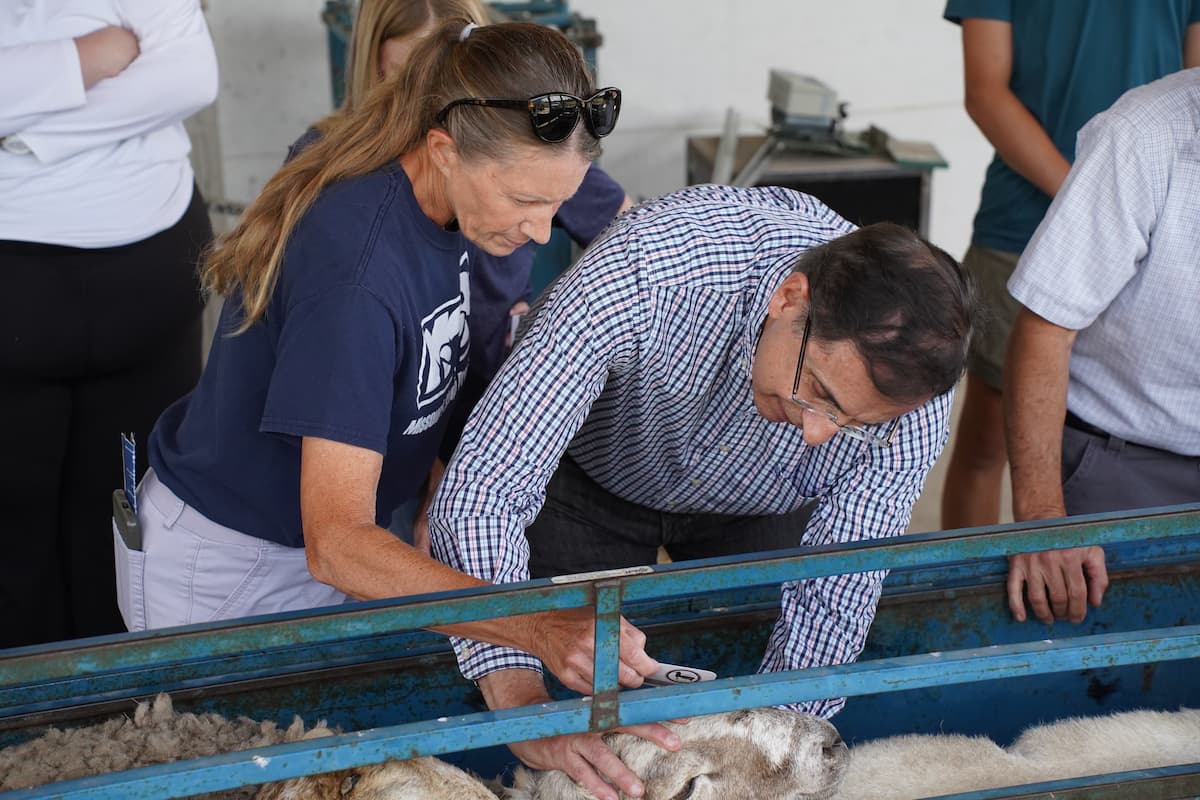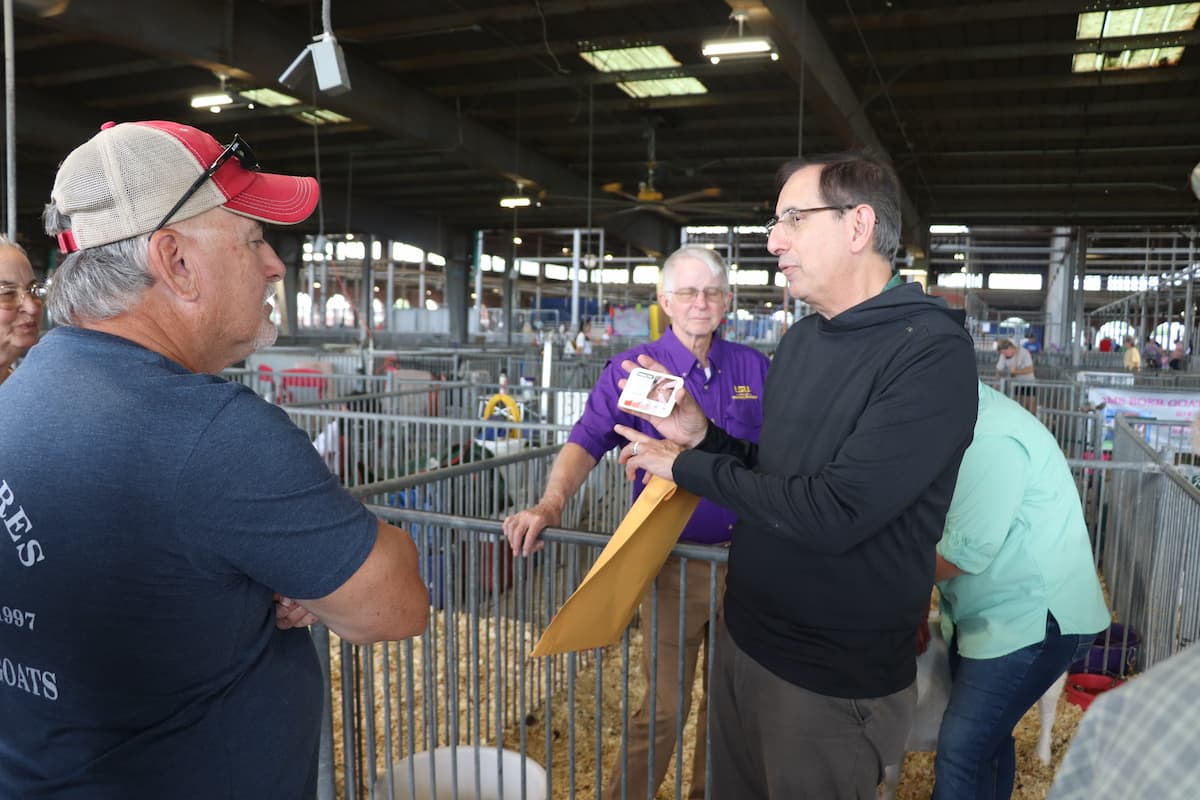Lincoln University Specialist Trains Small Ruminant Producers in Parasite Management
Office of Communications and Marketing
Young Hall
820 Chestnut Street
Jefferson City, MO 65101
 Dr. Homero Salinas demonstrates using the FAMACHA card to workshop attendees.
Dr. Homero Salinas demonstrates using the FAMACHA card to workshop attendees.
At Lincoln University of Missouri (LU), Dr. Homero Salinas leads efforts to help sheep and goat producers combat one of the most persistent threats to their herds: parasites.
Salinas, a state extension specialist in LU’s Small Ruminant Program, is the only person at the university certified in FAMACHA (short for the Faffa Milan Chart), a system designed to help farmers identify which animals need deworming. The method, he said, offers a sustainable approach to parasite management. Since only about 20% of the herds have 80% of the parasites, overuse of medications has raised concerns for both animal and human health.
FAMACHA uses a simple diagnostic tool: a card used to match the color of an animal’s lower eyelid to levels of anemia, a key indicator of barber pole worm infection. Barber pole worms are the most significant parasite affecting small ruminants, including goats and sheep.
The testing system supports what is known as Targeted Selective Treatment, or TST. Rather than treating an entire herd, producers use the FAMACHA card to identify and deworm only the animals most at risk. By limiting the use of medication, TST reduces the chance of drug resistance developing in parasite populations, while also cutting costs for producers.
Salinas said proper parasite management carries wider implications. Excessive or unprescribed use of deworming drugs can contaminate soil and waterways, he explained. Residue can then cycle back through grasses eaten by animals, leading to risks for consumers.
 Dr. Homero Salinas explains to workshop attendees what the different colors on the FAMACHA card indicate.
Dr. Homero Salinas explains to workshop attendees what the different colors on the FAMACHA card indicate.
“They use medicines in the animals without prescriptions … and you [also] have contaminations from rivers, from soil and the animals eating the affected grasses can transmit the contaminants back to the people through the meat [and] through the milk,” Salinas said. “And when they get diseases, they can be transmitted to people.”
To use the FAMACHA system, producers must first undergo in-person or online training. Only then can they receive an official card, which is required to practice the technique. Louisiana State University serves as the sole distributor of FAMACHA cards in North America, and certification restricts cardholders to using the tool only with their own animals.
Though widely applicable to goats and sheep, FAMACHA is not designed for larger livestock such as cattle or horses, where barber pole worm infections are not a significant issue.
For Salinas, training and outreach are as important as the tool itself. He has the certification to teach FAMACHA in Missouri and often holds workshops teaching the method.
“It’s a good opportunity to be training [and] educating people, for them to be managing their parasites in the small ruminants,” he said.
By equipping farmers with the skills to better manage parasites, Salinas hopes Lincoln University can help small ruminant producers improve herd health, safeguard the environment and protect the food system.
Click here for more information on FAMACHA.
For more information on future FAMACHA workshops, contact Dr. Salinas at Salinas-GonzalezH@lincolnu.edu.
